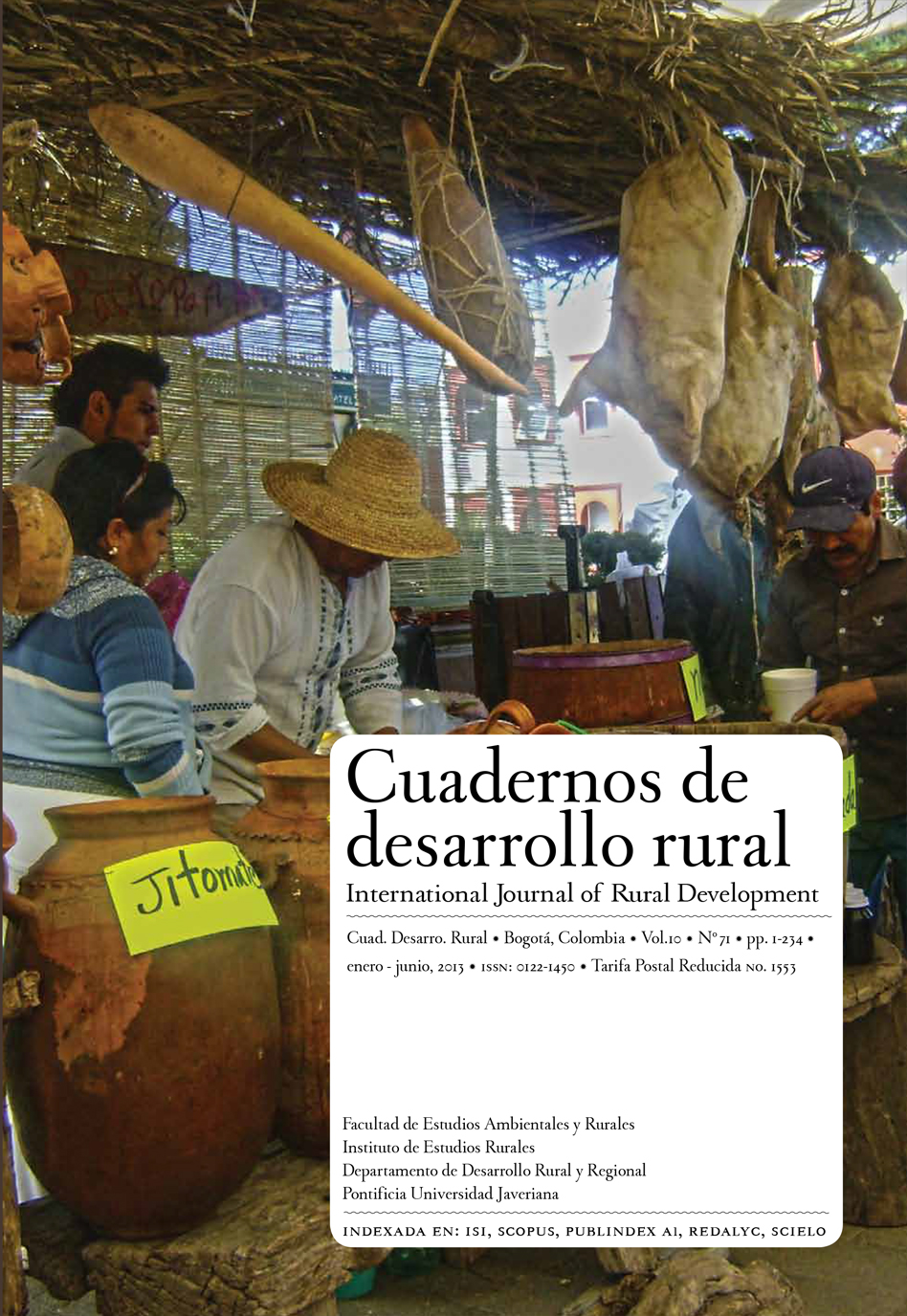Abstract
En México se están gestando dinámicas socioeconómicas en algunas comunidades rurales, a partir de la recuperación de la gestión de sus recursos naturales y de la creación de Empresas Forestales Comunitarias, que propician un tipo de progreso incluyente y participativo. El objetivo del documento es analizar el caso de San Pedro El Alto en México, con la perspectiva del desarrollo endógeno local, la propuesta de Víctor Toledo (1996) sobre comunidades sustentables y el modo de apropiación poscampesino (Barkin y Rosas, 1996; Rosas, 2011), que plantea la transición de la producción de subsistencia a una producción que incrementa la calidad de vida. Se utiliza la metodología participativa, entrevistas semiestructuradas a informantes clave e información documental. Se muestran datos que evidencian que San Pedro El Alto ha logrado condiciones de desarrollo a partir de la creación de la Empresa Forestal Comunitaria.
Cuadernos de Desarrollo Ruralis registered under a Creative Commons Attribution 4.0 International Public License. Thus, this work may be reproduced, distributed, and publicly shared in digital format, as long as the names of the authors and Pontificia Universidad Javeriana are acknowledged. Others are allowed to quote, adapt, transform, auto-archive, republish, and create based on this material, for any purpose (even commercial ones), provided the authorship is duly acknowledged, a link to the original work is provided, and it is specified if changes have been made. Pontificia Universidad Javeriana does not hold the rights of published works and the authors are solely responsible for the contents of their works; they keep the moral, intellectual, privacy, and publicity rights.
Approving the intervention of the work (review, copy-editing, translation, layout) and the following outreach, are granted through an use license and not through an assignment of rights. This means the journal and Pontificia Universidad Javeriana cannot be held responsible for any ethical malpractice by the authors. As a consequence of the protection granted by the use license, the journal is not required to publish recantations or modify information already published, unless the errata stems from the editorial management process. Publishing contents in this journal does not generate royalties for contributors.


